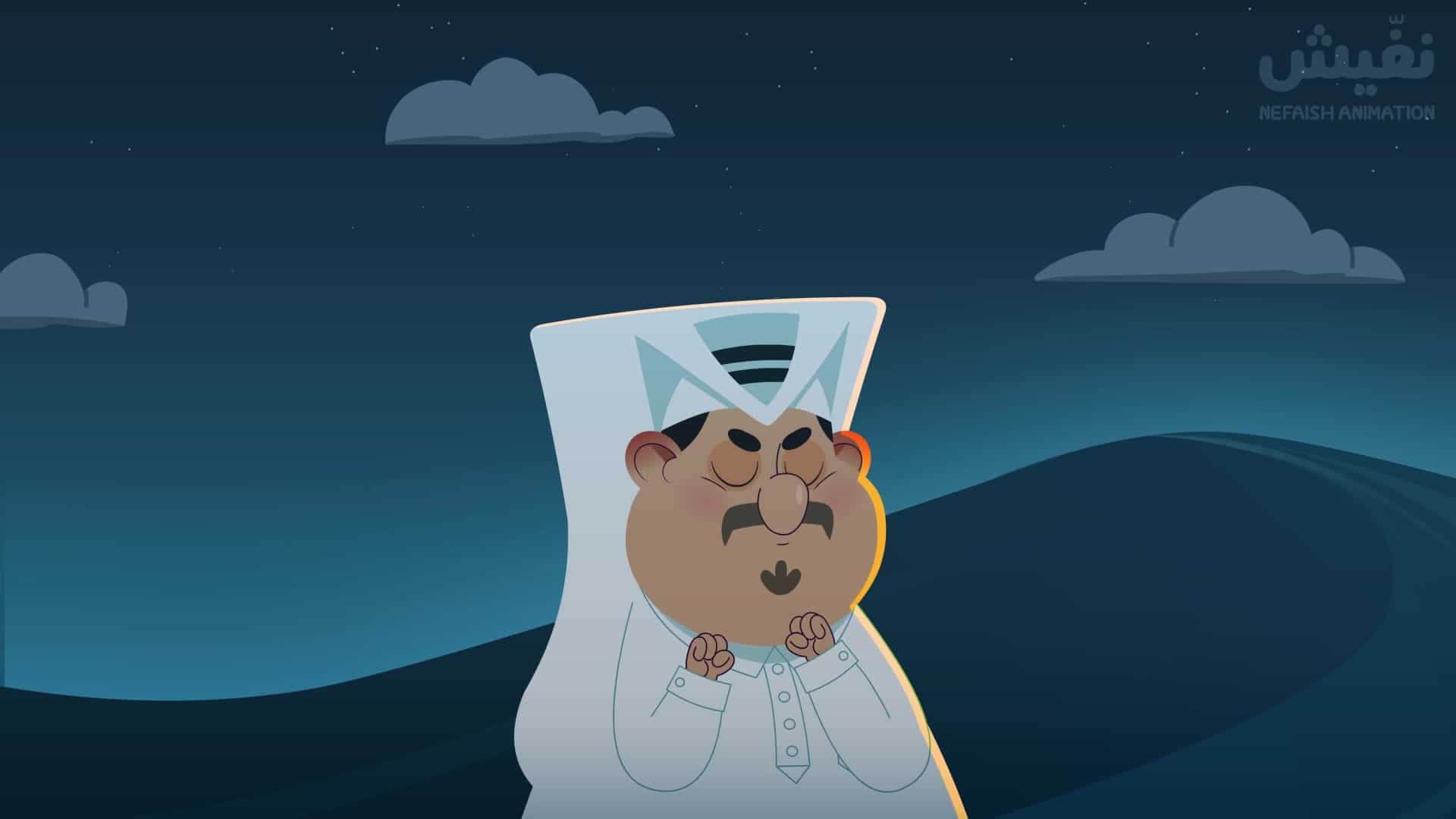A cartoon series on an alien who crash-lands in World Cup host Qatar aims to ease a culture clash between more than a million foreign football fans and the conservative state’s residents.
Like the arriving fans, Kawkabani, star of the series launched by Qatar’s first animation studio, has to learn Arabic pronunciation, how to drink coffee — and to discover that Qataris prepare way too much food for their guests.
Creators Hossein Heydar and Amal al-Shammari also want Qataris to get the message that they will have to make cultural concessions to the beer-drinking, good-time-seeking masses who converge on their country in November and December.
The first two 10-minute episodes of “Kawkabani” — which means “The Planet Person” in Arabic — have already been launched on YouTube by their company, Nefaish Animation.
“As an animation studio, we looked at content in the region, even in Qatar, and we felt there was a lack of content that represents Qatari culture,” said Shammari, Nefaish’s creative director.
Arabic words were sometimes garbled and costumes not always quite right.
“We felt like we need a studio in Qatar that pays attention to all these details and represents Qatari culture in the right way,” he said.
Tiny Qatar’s triumph in securing the right to host the World Cup gives it the opportunity to show off its traditions and customs.
“We want to explain a lot of things and share our culture with the visitors,” said Shammari, who wrote the script.
Nefaish only hired artists from the Middle East with knowledge of Arabic culture, added Heydar, in charge of animation.
Besides Kawkabani, the series has three main Qatari characters representing what the creators consider to be the main strands of the 270,000-strong indigenous community, which lives alongside more than 2.5 million foreign workers.
Coffee culture
Faisal is a traditional bedouin, the community that used to inhabit the desert.
“You know they’re more proud of their culture, and then they sometimes overreact,” said Shammari.
But “they would support you no matter what. They’ll always be there for you.”
Saad, another of the Qatari characters, is a more “modern” city dweller. “He is open to different cultures, he’s open to people, he wants to be a businessman,” said the writer.
As for Khalifa, he represents the growing mixed community in Qatar. A vegan, his mother is British and father Qatari.
Each of the five episodes in the first series — translated into English, French, Spanish, Hindi, Mandarin Chinese and Japanese on YouTube — shows the Qatari way of life, especially food and drink.
Kawkabani runs into trouble for not knowing the right-handed gesture used to indicate having drunk too much coffee.
But the series also pokes fun at Qataris.
With up to 1.4 million visitors expected in Qatar for the World Cup, Shammari said the cartoon sought “to explain to Qataris that there must be acceptance of these cultures… and help them (visitors) coexist or understand the Qatari culture as well”.
Kawkabani was part-financed by Qatar’s World Cup organisers, the Supreme Committee for Delivery and Legacy, as well as the Doha Film Institute and telecoms giant Vodafone.
While the first programmes do not touch on controversial issues such as rights of migrant workers and women, Heydar insisted there had been complete artistic freedom.
“This is our show and the sponsors were very supportive and they gave us all the freedom to create it the way we see it,” he said.
The pair already plan two more series of Kawkabani alongside other projects to highlight Arab culture.
“Our heritage is full of stories, is full of characters, full of heroes and we want to showcase them from Qatar or from the Arabic region to the whole world,” he said.








